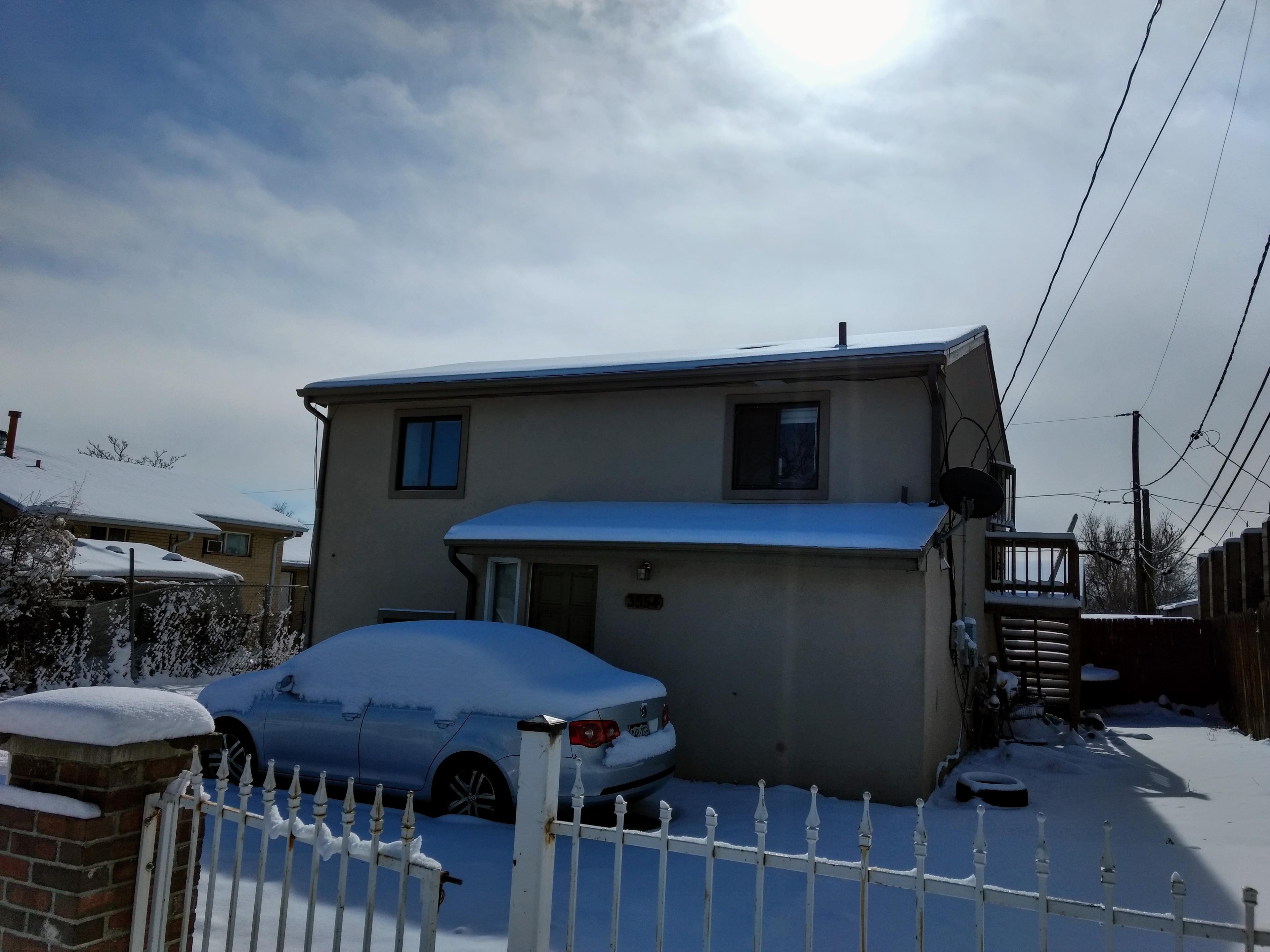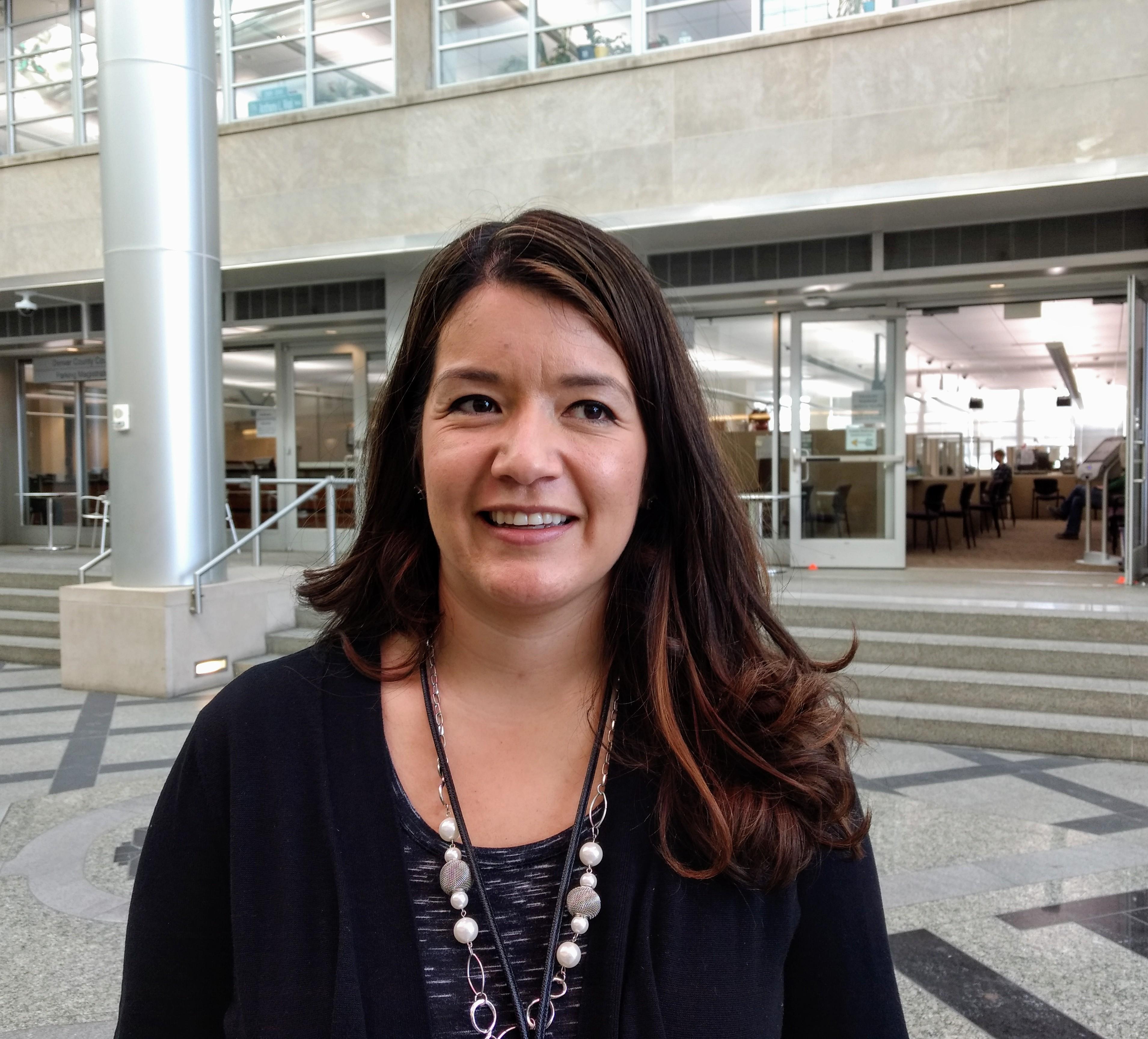As a child, the hours her family spent helping build a Habitat for Humanity home were joyful.
"I just remember running around" the construction site, Ann Padilla-Parras said. "It was like a playground."
That was in the early years of Habitat for Humanity of Metro Denver, which this year is celebrating its 40th anniversary. Padilla-Parras, now a juvenile diversion officer for the Denver district attorney and member of the board of the faith-based housing nonprofit, looks back on not only the joy but the stability, opportunity and confidence a Habitat home gave her family.
"We didn't know how poor we were. When we got the house, we were rich -- we had everything we needed," Padilla-Parras said. "My favorite memories are holidays. It was the laughter. It seemed like a big house. As got older, we started having kids, it was the crowing in there."
In addition to attending buyer education classes, paying closing costs and making monthly mortgage payments, low-income families that want a Habitat home put in the "sweat equity" for which the faith-based nonprofit is known. These days, each adult family member is required to contribute 200 hours of labor to their and other Habitat houses.
Padilla-Parras remembers the requirement being 500 hours three decades ago, and that children weren't strictly barred from lending a hand. Her older brother, who was then about 14, and her mother did most of the actual work, she said, while she and three other younger siblings were underfoot. Her father, disabled by a tissue disease, was unable to do much of the hammering and painting. Years later as a Habitat volunteer, Padilla-Parras said she found on construction sites that she was capable of doing things she'd thought were beyond her.
"I learned so much on the job sites. I felt empowered," she said. "It had to have been the case for my mother."
Her mother, Rebecca Cortez, who was still living in their Habitat house when she died in 2006, had endured years of domestic abuse.
"When my mom got the house, she got enough strength to leave him," Padilla-Parras said of her father. "Up to that she just survived."
While they had helped build a new house, Padilla-Parras said at the last minute the family was allocated a bigger, older house that had been renovated. It sits on a large, quiet lot at the end of a dead-end street in Westwood. Padilla-Parras, 11 years old when they moved in three decades ago, had attended three elementary schools. At times she, her two brothers, two sisters and her mother had lived in shelters for abused women.
"We probably knew it wasn't good, why were were moving" so often, she said. "But no one ever talked to us about why."
"We'd really just woke up every day and started again."
The economic benefits of home ownership are often discussed. For Padilla-Parras, the rewards were deeper than wealth building. All the moving around meant she kept changing not just schools but doctors, a reason she thinks she wasn't diagnosed as having asthma until she was older.
"I think of my own kids, playing on the same sports teams, having the same teachers," said Padilla-Parras, who has three children and three stepchildren. "Their lives are so different."
Her house-proud mother kept painting and repainting once they moved in in Westwood. Cortez pushed her children to go to school after the earlier disruptions to their education, and got a GED herself.
"Her biggest goal for us was to graduate high school, because she didn't do that," Padilla-Parras said.
According to a survey of 121 Habitat homeowners in the Denver area conducted for the nonprofit by the Evaluation Center at the University of Colorado, 40 percent completed additional education and 98 percent expected their children to continue past high school. The high school graduation rate among those who grew up in Habitat homes is 98 percent.
Heather Lafferty, CEO and executive director of Habitat for Humanity of Metro Denver, said, "Kids, when they have stability at home, they're going to thrive."
Padilla-Parras said home gave her family an anchor when they faced setbacks. She dropped out of high school in ninth grade, traumatized by her father's death that year. She eventually went to the alternative Denver Street School whose staff chose her to receive a full scholarship to Metro State even though she didn't think she wanted to go to college.
"Moving school so many times, I really didn't see that I was smart."
She did enroll, the first person in her family to go to college. She earned a bachelor's with a double major, in history and in criminal justice and criminology. Padilla-Parras tried law school in California, but, still lacking confidence, left after a year. She returned to Colorado and worked in real estate until the market collapsed. She also had experience as a legal secretary, so looked for secretarial work in the Denver DA's office. That led to the job she's held the last 11 years as a diversion officer in a program that tried to keep young first-time offenders from breaking the law again by providing them and their families counseling and other support. And now she's been accepted to the University of Colorado's master's program in public administration and is waiting for a Metro response to her application to study social worker before deciding what graduate direction to take.
After her mother's death, the Westwood house fell out of the family's hands. Padilla-Parras and her husband own a home in Arvada. She has seen it become harder for low- and moderate-income families to own as Denver's cost of living has left wages behind.
"I've never had as many clients struggling with housing as I do now," she said.

It was while working for the DA that Padilla-Parras again encountered Habitat, this time as an option for city employees encouraged to support charitable projects. She and her husband began volunteering on job sites, which led to her speaking at events on behalf of the organization and then being asked to join the board.
As a board member, Padilla-Parras has seen how the organization has grown. Habitat had no staff when it started in metro Denver. Now it's developing whole subdivisions -- its Sheridan Square, on a 4-acre lot where an elementary school once stood in Sheridan, has sites for 63 homes. In 2012 the organization launched a program to help low-income families in Denver's Westwood, Globeville, and Elyria-Swansea neighborhoods with home repairs. In a partnership with the Colorado Visiting Nurses Association, Denver's Habitat is installing ramps and performing other renovations to help low-income seniors age in place.
Padilla-Parras said for all the changes, the key remains the assumption, embodied in the sweat-equity requirement, that people who are struggling don't have to have everything done for them.
"I think that's such an empowering piece," she said. "You set high standards, people rise to them."
She still finds joy on Habitat construction sites.
"The favorite part for me is talking to families," she said. "I see these kids and think, 'You have no idea what this is going to do for you."












